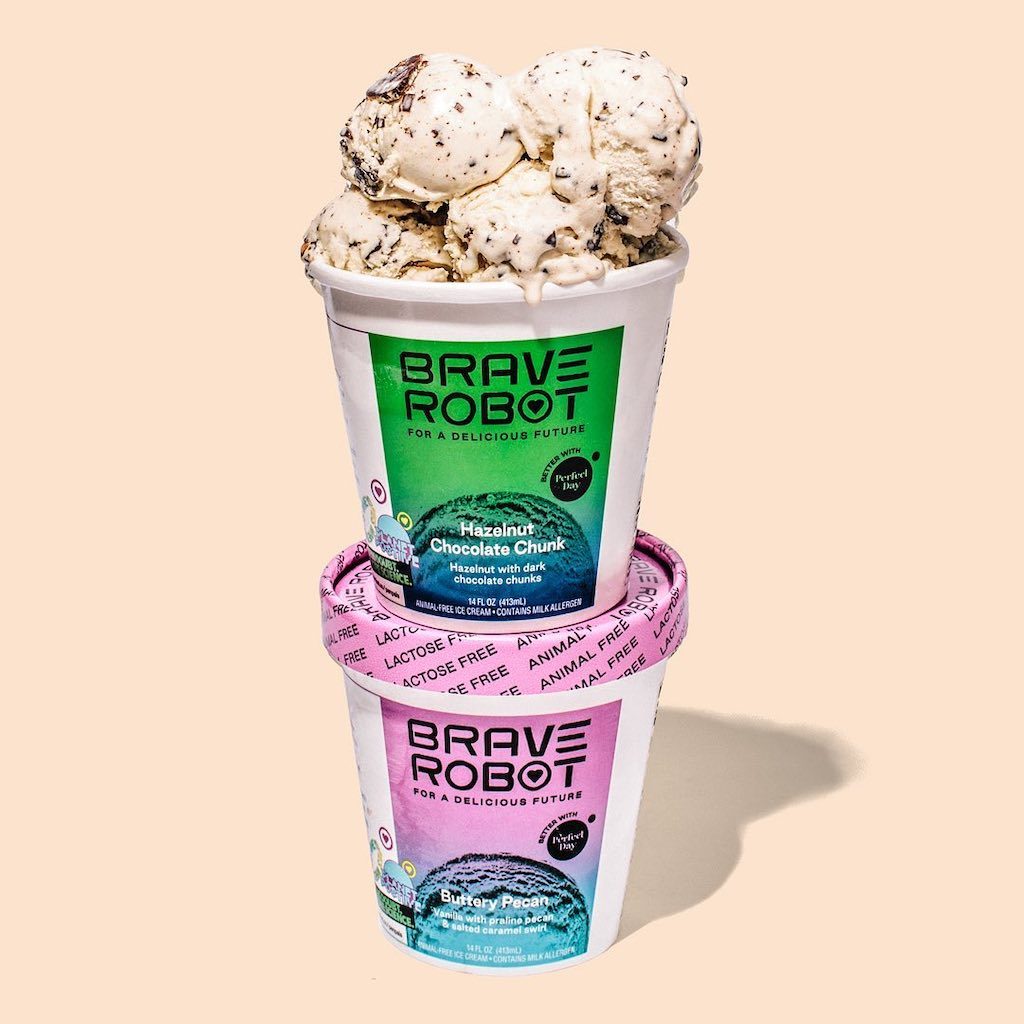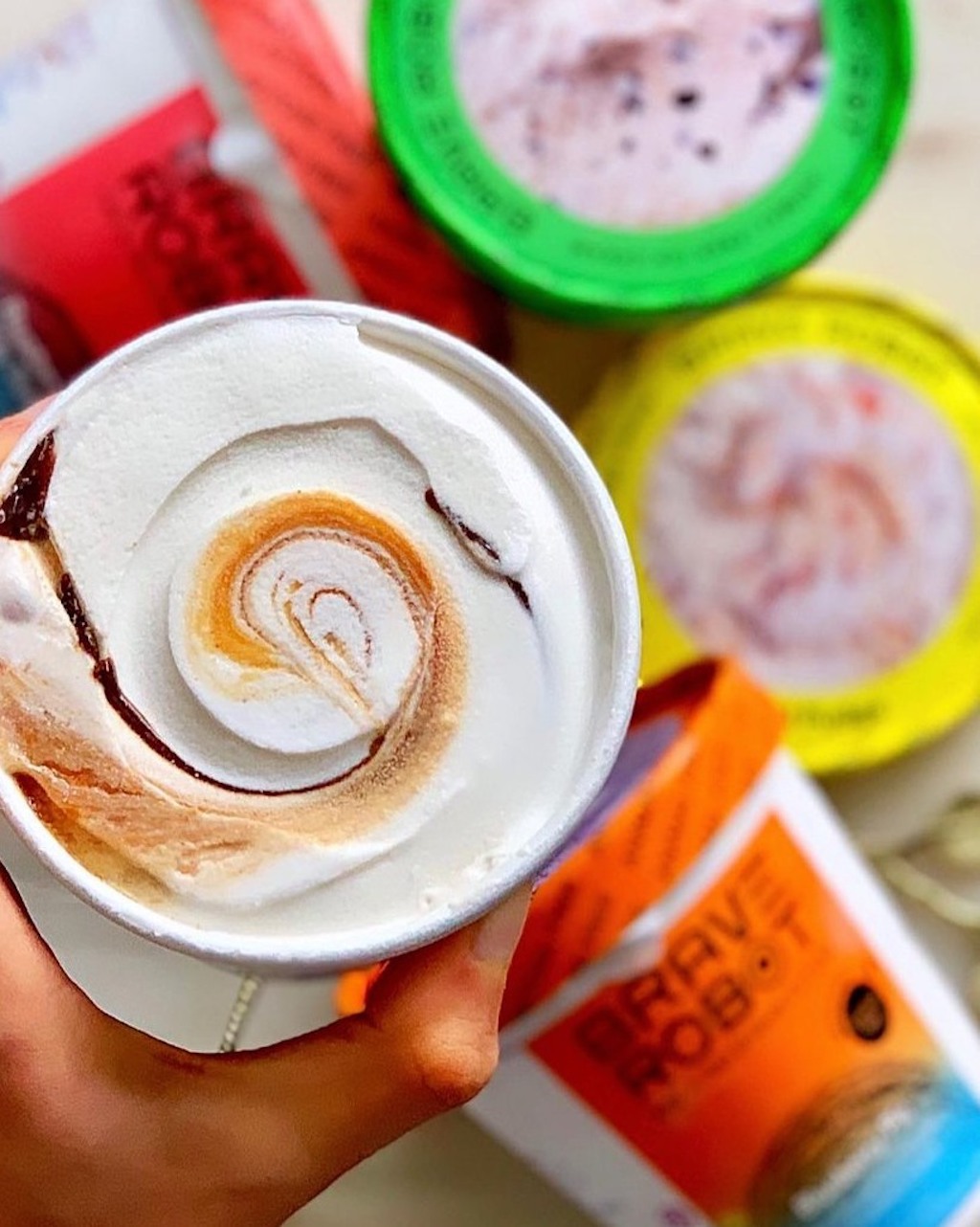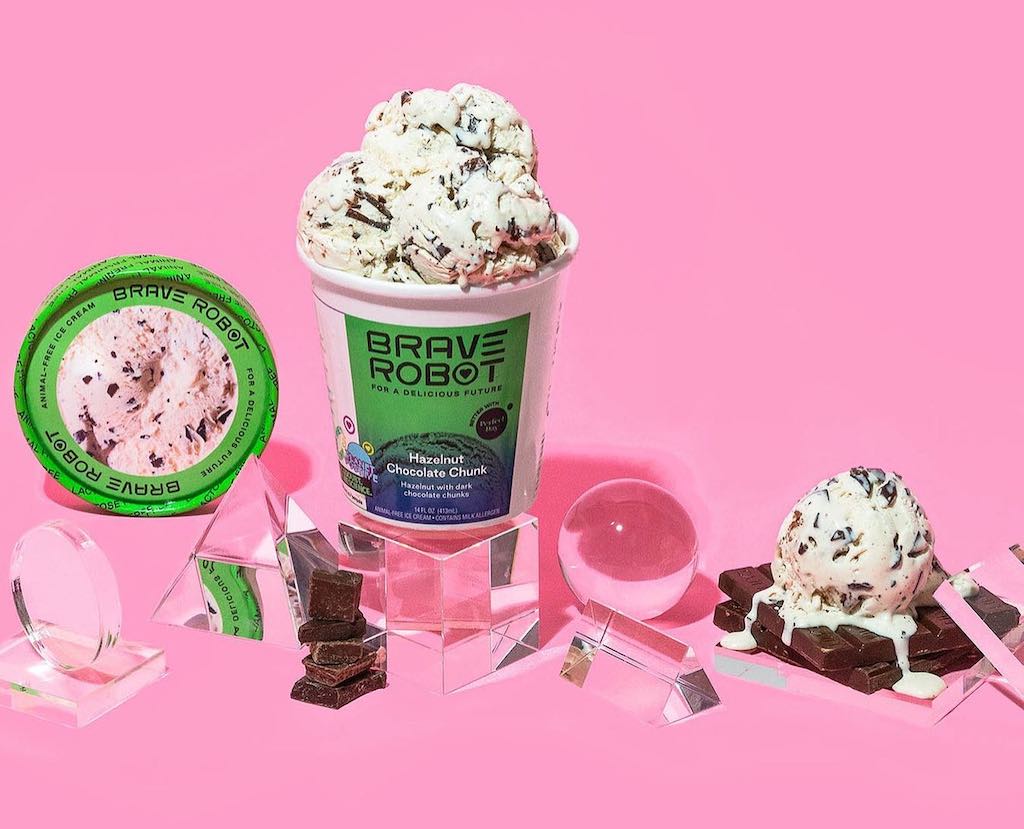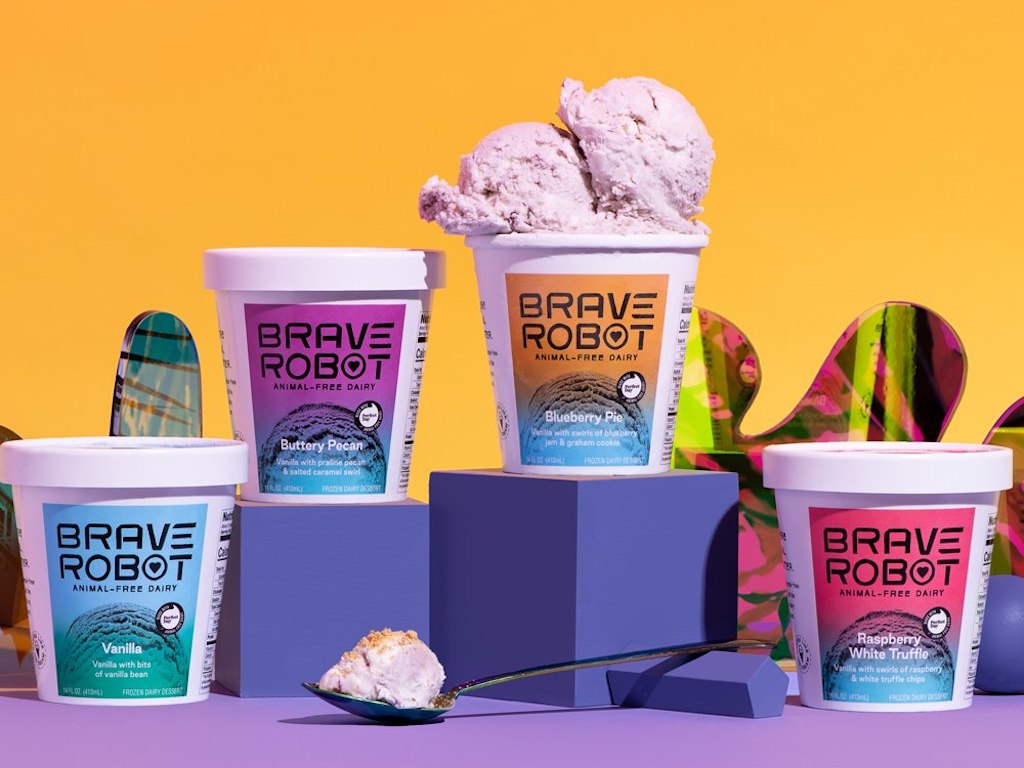4 Mins Read
Within just one year of launching, Brave Robot has managed to sell more than one million pints of its animal-free ice cream. The brand creates its ice creams using Perfect Day’s bioidentical whey proteins developed using precision fermentation, and says its sales figures represent the “countless demands” from consumers for “sustainable options that deliver on taste”.
Brave Robot, the animal-free ice cream brand launched by The Urgent Company, has already sold more than one million pints within its first debut year. Announcing its sales figures last month, the brand says its ice cream has topped the charts for being the number one growth driver within the plant-based ice cream category.
The Urgent Company is a sustainable food venture created by Perfect Day’s co-founders Ryan Pandya and Perumal Gandhi of Perfect Day, together with Paul Kollesoff. Brave Robot launched last year as its first brand, and the firm has since added Modern Kitchen to its portfolio, the world’s first animal-free cream cheese.

‘Countless demands’ for animal-free products
According to Brave Robot, the record sales of its animal-free ice creams signifies the strong push from consumers for more sustainable offerings. “These data points underscore what the company has been hearing from consumers: countless demands for kinder, more sustainable options that deliver on taste,” the brand said in a statement.
Brave Robot makes its ice creams using Perfect Day’s bioidentical whey milk proteins, which are created using precision fermentation. The process involves encoding DNA sequences of real dairy proteins into microorganisms, to ferment the same proteins without the need for cows.
In a life-cycle assessment, Perfect Day revealed that its proprietary technology enables an emissions reduction of at least 85% and up to 97% compared to conventionally farmed dairy. Brave Robot’s ice cream, which uses the food tech’s animal-free milk proteins, produces 34% fewer GHG emissions compared to its traditional dairy-based counterparts.

The brand, which began carbon labeling all its pints a few months ago, says the one million milestone means that its customers have helped to save around one million miles of GHG emissions—the equivalent of driving around Earth’s circumference 40-times over.
More animal-free foods on the horizon
Speaking about the success of Brave Robot, The Urgent Company’s marketing VP Jon Spear says that it will continue to innovate new animal-free products to cater to the demand.
“We’re thrilled to see growth in the marketplace and the positive response from consumers who are making a rapid shift in relationship to the food we consume and the planet we inhabit,” Spear shares. “We will continue to bring new options to market at the intersection of technology and food that put the future of our climate first, without compromising on taste.”

Outside of the US, consumers can get their hands on animal-free ice cream in Hong Kong. Perfect Day’s dairy proteins are used to make Ice Age’s ice creams in the city, the first non-US market to release an offering of this kind.
Having launched Modern Kitchen’s animal-free cream cheeses earlier this month, The Urgent Company’s co-founder Kollesoff told Green Queen Media that more cheese products are likely to be in the works. “Cream cheese is just the start for Modern Kitchen,” he told us at the time.
Cheese is poised to be one of the fastest-growing categories within fermentation-based alternative proteins. Despite animal-free cheese being a novel concept to many consumers, one survey commissioned by food tech Formo suggests that consumer acceptance is already at over 70%.
Formo, which is based in Berlin and working on animal-free mozzarella and ricotta, is part of a handful of startups focused on using precision fermentation to create cow-free cheese, among them Change Foods and General Mills’ new brand Renegade Creamery.
All images courtesy of Brave Robot / The Urgent Company.




